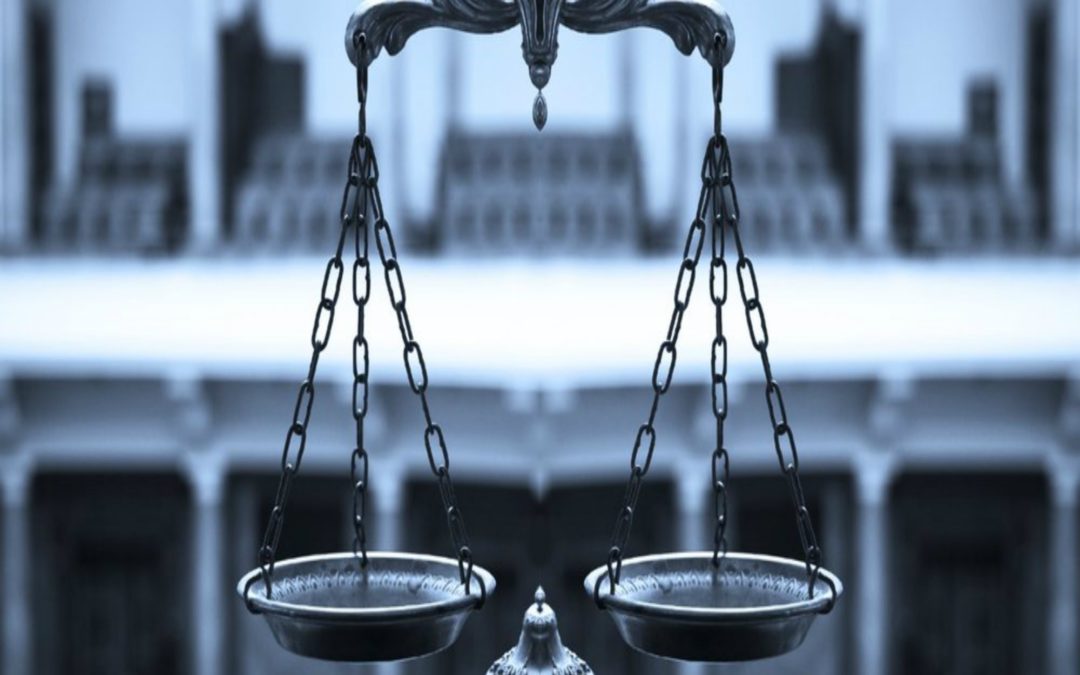
by Charlie Smith | Feb 16, 2018 | Blog, Personal Injury |
Negligence describes a scenario wherein a person acts carelessly, which results in an injury or property damage to another party. It’s perhaps the most common of the personal injury lawsuits, but it’s also one of the most difficult to prove in a court of law. What Constitutes Negligence? Negligence is the failure to use reasonable care, resulting in damage or injury to another. The most difficult part of negligence cases is determining reasonable conduct. For example, a driver must exercise the same care that a “reasonable person” would in the same situation, which includes driving according to traffic laws and being aware of other drivers and pedestrians. If a driver fails to wear his glasses and injures someone, they can be considered negligent because a “reasonable person” wouldn’t forget to wear their glasses. Reasonable conduct is the basic legal standard for figuring out who is at fault. To ascertain reasonable conduct, both parties must analyze the circumstances of the incident and determine what a reasonable person would have done in the situation. Negligence and the Burden of Proof In claims that are a direct result of accidents or injuries, the burden of proof lies on the plaintiff. To win a case and prove negligence on behalf of the defendant, a plaintiff must prove duty, breach, causation, and damage. This essentially states that the defendant had a certain duty, broke the responsibilities of the duty, caused an injury or property damage, and are liable for damages. Criminal vs. Civil Cases and Negligence One aspect that makes winning a negligence case easier than a criminal case is that you don’t have to...

by Charlie Smith | Jan 20, 2018 | Blog, Personal Injury, Personal Injury Lawyer |
While home insurance policies will cover some personal injury claims, they don’t cover everything. Furthermore, the coverage that they do provide for personal injuries is limited to a certain amount, such as $100,000. Typically, a home insurance policy would kick in to pay for the personal injuries of another for which a member of that household was legally liable. The injury doesn’t necessarily have to occur on the property to be covered either. The existence of a homeowner’s insurance policy can affect a personal injury claim on both ends, whether you’re the plaintiff (the injured party) or the defendant. Understanding Home Insurance Liability Protection Home insurance liability coverage usually has two components: personal liability and medical payments. The personal liability portion pays for claims or lawsuits that are against you, and that stem from accidents (that you or a member of your household caused) on or away from your property, causing bodily injury to others. Personal liability will also cover property damage from such accidents. Liability coverage will pay for legal representation for you if you are sued by the injured party. Keep in mind, though, that this coverage does not apply to injuries caused by intentional acts, auto-related accidents, or business-related incidents. Depending on your policy, personal liability will typically provide at least $100,000 of coverage per incident. With most policies, no deductible is associated with personal liability claims. Medical payments coverage will cover the medical expenses of parties accidentally injured on the covered property, no matter whose fault it is, up to the policy limit. However, medical payments coverage does not pay for personal injuries to members of the household, nor...

by Charlie Smith | Jan 5, 2018 | Blog, Personal Injury Lawyer |
The moments following a serious accident are shrouded in panic. Whether you’re the victim or you simply witnessed a crime, you can easily forget how to respond in an emergency. However, the moments following an accident are often pivotal to the outcome of cases that are settled or go to court. This point is especially true in events involving serious damage to the brain. Symptoms of such harm may not manifest themselves for weeks, and individuals who fail to collect evidence or check in with a doctor may have trouble retroactively remembering these details and pursuing a personal injury claim. If you experience a blow to the head — whether as the victim or as a witness — follow the steps below in order to successfully pursue a traumatic brain injury (TBI) case. Record Details, Including Witness Contact Info Following an accident that causes injury, regardless of whether the damage was done deliberately, record as much information as possible about what happened. Take notes if you can. As you begin to document the event, keep the following details in mind: What happened: Document the nature of the event, such as a sports collision, a car crash, or a slip and fall. List all parties involved: You need the name of the victim and the person who inflicted the damage. Also get contact information from any witnesses who could confirm what happened. The victim’s symptoms: Physical symptoms of a TBI include loss of consciousness or a state of confusion or disorientation, headaches, and vomiting. Sensory problems and cognitive signs may also be present. Record details of these symptoms and any...

by Charlie Smith | Jul 11, 2017 | Amusement Park Injuries, Blog, Personal Injury |
Personal injury cases happen to everyone, including celebrities. Though the parties involved can be tight-lipped about the legal proceedings themselves, news sources still manage to dig up interesting information about these cases. From falling through trapdoors to getting hit with falling backdrops, celebrities and those close to them have suffered some serious injuries in the pursuit of fame. Adrian Bailey vs. Disney In 2008, a cast member of the Broadway performance of “The Little Mermaid” fell through a trapdoor. Adrian Bailey, the injured party, broke his back, pelvis, sternum, wrists, and foot. He said that there weren’t warnings about the trapdoor, which could have prevented him falling through. Lawyers filed several lawsuits, including one against Nicson, the manufacturer of the automated trapdoor, and one against Disney. Nicson was found not liable because “human error” and not a design defect was the reason the trapdoor was open. Brett Michaels vs. CBS In 2011, Brett Michaels, lead singer of the band Poison, sued CBS and the Tony Awards for an injury he sustained during a show in 2009. During the Tony Awards that year, he was exiting the stage at Radio City Music Hall, and a backdrop came down on his head. Michaels ended up with three stitches in his lip and a broken nose. He said that, though he asked for details on how to exit the stage, he didn’t have the right information, which is why the backdrop came down on him. In 2010, Michaels had a brain hemorrhage and felt the 2009 injury was part of the cause. Neither party in the lawsuit would give details about the...

by Charlie Smith | Jun 24, 2017 | Blog, Personal Injury Lawyer, Tips |
If you’ve suffered a personal injury, you need to consider the future. You may soon become saddled with endless medical bills, time off from work, and other financial considerations. Pursuing legal compensation may be necessary, and it’s critical that you select the right attorney. Throwing a dart at the phone book is an easy way to choose, but there are much better ways to proceed. Select a Local Attorney Most people turn to the internet to find just about anything nowadays, so searching for legal help is likely to fall into that category. It’s important that while cyberspace knows no physical boundaries, your future attorney’s license to practice law certainly does. Your search should immediately narrow down to those who are licensed in the state in which the injury occurred. Next, consider only those within driving distance to your place of residence. Face-to-face visits with your legal counsel will be necessary, so you don’t want to travel too far for these meetings. Find an Attorney That Specializes in Personal Injury Law firms practice in several different areas, including criminal law, divorce litigation, child custody, and tax law. Personal injury cases require specific knowledge, such as medical terminology and different types of injuries. Personal injury attorneys typically have ample trial experience, while others (such as real estate attorneys) may have none at all. They’re also good negotiators and can develop a fair out-of-court settlement on your behalf. Choose a Successful Attorney Once you’ve narrowed down your choices a bit, do research into your potential candidates. Find out how many years they’ve been practicing law. What sort of track records do...








Recent Comments